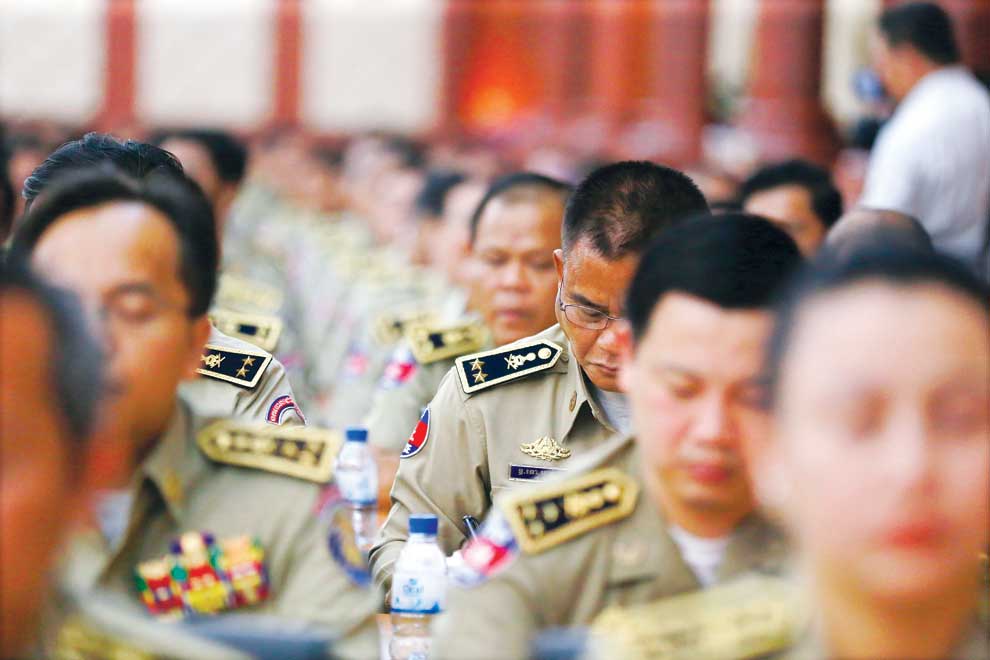
Ministry of Interior officials attend the year-end meeting of the General Department of Identification in Phnom Penh yesterday. Heng Chivoan
Discrepancies, disorganisation, bribe-taking and carelessness are plaguing the government’s attempts to count how many births, deaths and marriages take place each year in the Kingdom, officials said yesterday.
Interior Minister Sar Kheng said the country’s disorderly civil registration system has resulted in records rife with misspellings, incorrect ages, duplications and other irregularities – adding that part of the problem is officials taking “unofficial payments” to falsify documents to help people find work overseas.
“Some of our officials who are in charge of records have participated in this,” Kheng said at the ministry’s General Department of Identification year-end meeting in Phnom Penh yesterday.
Cambodia’s civil registration records were destroyed under the Khmer Rouge, and the government has since had to rebuild them from scratch. In 2016, the government launched a $48 million plan to identify and register every Cambodian with a personal ID code in a comprehensive electronic system by 2026. However, officials yesterday acknowledged the plan had been slow to get off the ground due to lack of technical expertise.
Mao Channara, head of the General Department of Identification, said the public’s understanding of the benefits of maintaining such records was still limited – as was the training of local officials.
According to the department, roughly 60 percent of babies are still unregistered 30 days after they are born, and registrations are particularly low in Cambodia’s remote provinces and among ethnic minority communities.
“Failing to register births or doing so late, as well as commune officials using their legal role carelessly or in violation of the law, has allowed people to change their backgrounds and negatively affected our ability to control foreigner and citizen affairs,” Channara said.
National Institute of Statistics Director Hang Lina applauded the government’s efforts to identify and register all Cambodians, noting undercounting creates problems for their research.
“If they are not counted, it affects everything, [like] calculating poverty or calculating economic growth,” Lina said.
The disorganised system has also impacted thousands of ethnic Vietnamese people – many of whom have lived in Cambodia for generations – who are in the midst of a crackdown by immigration officials over questions about their citizenship.
Kheng said he is also reviewing the citizenship law under which foreigners can pay money to become Cambodian citizens. “We need to review it properly to ensure that the price is not too expensive or too cheap,” he said.
Additional reporting by Daphne Chen














